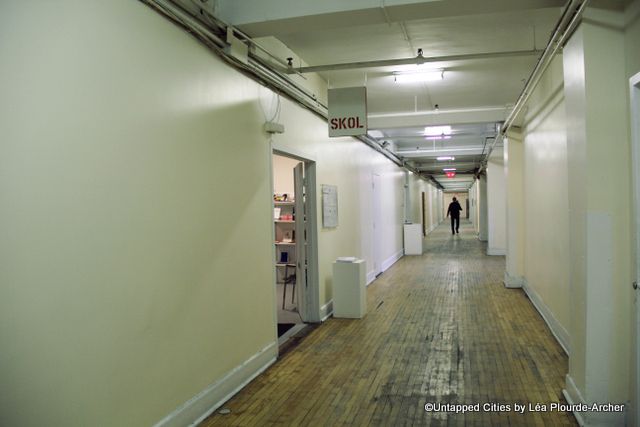Last-Minute NYC Holiday Gift Guide 🎁
We’ve created a holiday gift guide with presents for the intrepid New Yorker that should arrive just in time—


Hidden in plain sight, the Belgo Building in Downtown Montreal is heaven for contemporary art enthusiasts. Though it spans the size of one block on one of the city’s busiest streets (Sainte-Catherine Ouest), the indistinct entrance, sandwiched between souvenir shops, discount shoe stores and fast food restaurants, reveals little of what is to be found once you pass through the glass doors and head up a few flights of stairs.
Within this building are housed over 27 art galleries as well as many artist workshops and dance studios. Unfortunately, though some of the city’s best galleries are here, this spot remains little known even to many Montrealers.

Galeries are set side by side, connected by long neon-lit hallways
Once inside, it’s easy to spend a whole afternoon wandering from one gallery to another. (Come Friday or Saturday, when most of the galleries are open.)
The history of the building itself is quite interesting, as is the evolution of how it came to be such an important center for contemporary art in Montreal.
At the time it was built in 1912, (what is now known as) the Belgo building housed the Scroggie’s department store, which specialized in luxury products. Scroggie’s was eventually sold to an American company and was renamed as Almy’s. A few years later, the store hit hard times and started renting out the upper floors to companies in the garment industry. Almy’s closed in 1922 and the rag trade took over the whole building.
According to Bettina Forget, author of the Belgo Report website and owner of the Visual Voice gallery, the building eventually became moribund and very little documentation is available to explain the subsequent transition into a dynamic contemporary art center. The building’s timeline is mostly recounted through people that were present at the time, like artist Gordon Clark who was one of the first to move in over thirty years ago.
Clark states that some rag trade workshops were still present at the time, but they were slowly moving out. Walls were put up to create separations and the empty spaces were being rented out by the month. Artists, many of them students in the arts program at Concordia University, would rent them to hold art exhibits. Eventually, the owners decided to prioritize year long leases and permanent art galleries took up the spaces.
Today, the rooms in the Belgo Building are highly coveted and the waiting lists to rent one are long. Each gallery is curated independently and exhibits change often, so even regular visits to the Belgo Building bring new surprises. For the full gallery listing, check out the Belgo Report’s website.
Subscribe to our newsletter